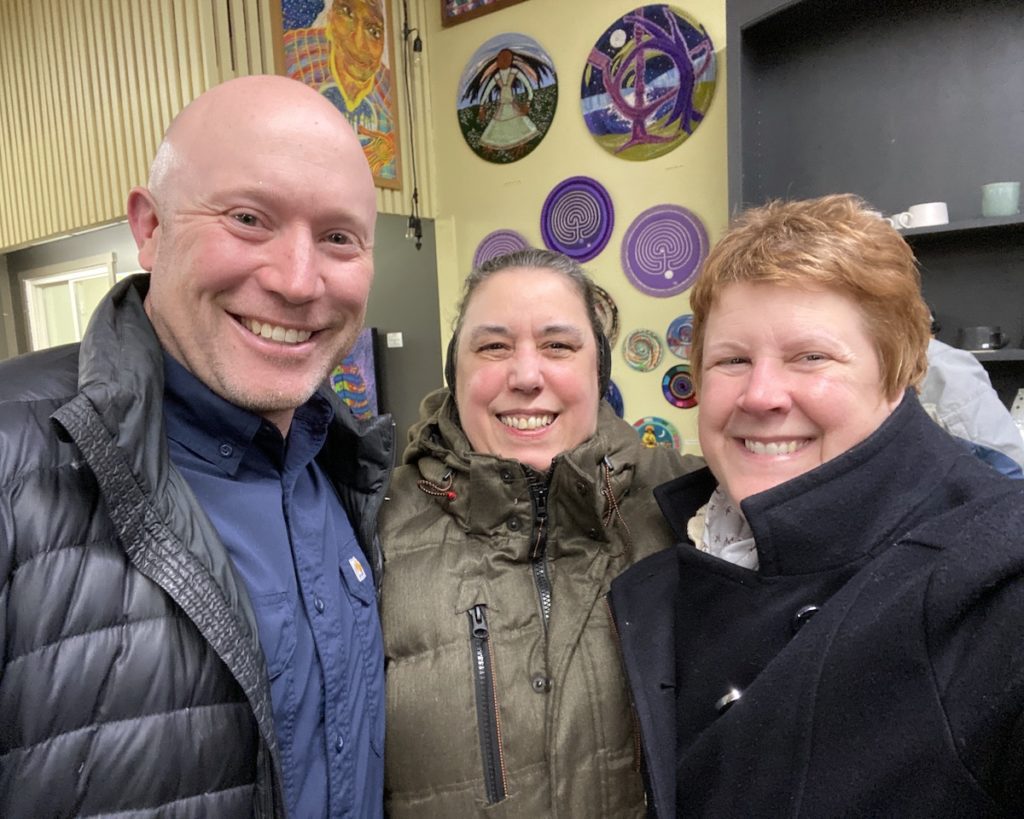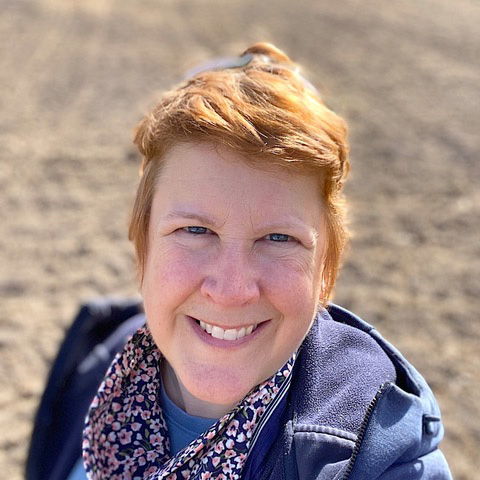Member Spotlight: Caroline Hegstrom & Growing Organic Farming
By Katie Feterl • Communications Director
Like all SFA farmers, Caroline Hegstrom wears many hats. She is a very active member of our Association Board, serving both as the delegate for the Lake Superior Chapter and the Board secretary. Out in the field, she runs The Boreal Farm in Duluth (organic vegetable and flower CSAs; farmstand) as well as Taiga Farm & Seed, which specializes in seeds for us northern growers in Zones 3 and 4.

Caroline has only ever been an organic farmer — she started preparing to be certified organic in 2014. “When we opened our doors [in 2017], we were certified organic from the very beginning,” she says. Today Caroline is a new member of the Minnesota Organic Advisory Task Force and a farmer mentor in the Transition to Organic Partnership Program (TOPP). I sat down with her at the end of 2024 to learn more about these roles and the opportunities they present to our members.
Organic Advisory Task Force
According to Minnesota statute 31.94 c, the Organic Advisory Task Force (OATF) is responsible for advising the Minnesota Department of Agriculture Commissioner and the University of Minnesota on policies and programs that impact organic agriculture. Caroline says that this includes making recommendations on organic rulings for the Minnesota legislature, as well as recommendations on the task force itself to make sure that it reflects the state’s stakeholders in the organic sector. OATF also assists in producing the annual Minnesota Organic Conference.
Current OATF representatives include organic handlers, processors, certifiers, retailers, farmers, consumers and others. Representatives from University of Minnesota faculty and Extension also sit on the advisory board and in part act as a conduit between the task force and the university to encourage organic information being incorporated into curriculum. Caroline is proud to provide representation to Minnesota’s CSA farmers in the task force.
During the first OATF meeting Caroline attended, she said that one of the largest discussions the group had “was about farms claiming organic that aren’t organic, or saying that they use organic practices when there’s a lot more than just not doing herbicide and pesticide in organic farming…this is a real concern or issue that consumers don’t really understand what organic means.” They also considered questions around “regenerative” vs. “organic.” Are they the same? Does one supersede the other? How do language and practices play a role in labeling? The task force is responsive to ongoing developments and even cultural or consumer changes in agriculture. Caroline takes her role on advisory body very seriously.
What does Caroline most want organic farmers to know about the OATF? “I am their representative. They are welcome to come to me with their concerns, their issues, their feedback, their questions, and I will do my best to both represent them and get them connected to where they need to be to get their answers.” Caroline can be reached at theborealfarm@gmail.com.
Transition to Organic Partnership
The Transition to Organic Partnership Program (TOPP) pairs experienced mentors with mentees in order to help farmers through the years of transition. It is facilitated by the University of Minnesota and funded by the USDA.
The length of participation in the program will depend in part on farming experience and documentation skills, but a farmer could be a mentee for up to three years: first preparing for certification, then becoming certified, and potentially continuing work to implement any further changes a certifier might require. Mentees receive mentoring, technical assistance, and a generous education stipend —all free of cost.

Caroline recently joined the program as a mentor, and as you might guess, her forte is specialty crops. Part of her motivation for being a TOPP mentor is to cultivate new organic growers in her community. At least as of the time of our conversation in December 2024, Caroline is the only organic grower in the Arrowhead region. She says there’s a lot of opportunity in making the transition.
“Those who are in northeast Minnesota who have ever contemplated being organic, this is the time. I’m right here, I’m available to them, it’s easy for me to get to their farm, and we’re working with the same soils.”
Other mentors are available to work with farmers in other parts of the state. If you are interested in the program, you can check out the program website or contact Caroline Hegstrom at theborealfarm@gmail.com.
